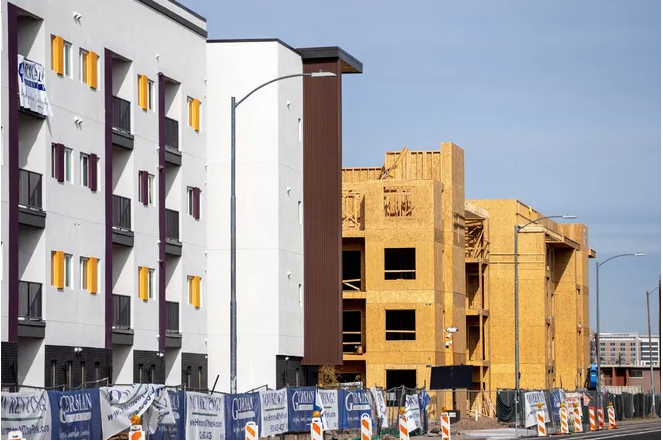Arizona State University’s Morrison Institute for Public Policy recently issued a new report on housing in Arizona.
“Housing Arizona: Meeting Development Challenges to Arizona’s Housing Shortage” includes interviews with 15 developers to get their insights on problems facing housing development and potential solutions to address the state’s shortage of an estimated 270,000 units.
The primary challenges outlined in the report are zoning restrictions, resident opposition (NIMBYism), and funding difficulties.
Because many Arizona municipalities have zoned approximately half their land for single-family residences, developers have to request a rezoning if they want to build any housing other than freestanding owner-occupied homes. Rezoning can take anywhere from a few months to several years, depending on the volume of opposition to a given project.
Neighborhood residents and outside opposition groups often raise objections based on unfounded fears of increased crime and traffic and decreased property value. Opponents also frequently cite renters as being less desirable residents than owners, perpetuating stigmas and discrimination, especially against persons of lower and middle income levels.
Compounding difficulties in Arizona, there is a shortage of land already zoned for multifamily.
At least 30 multifamily developments were delayed or canceled in 2021 because of community opposition, zoning difficulties or political opposition.
Also making development more difficult are price increases for land, materials and labor, all of which have been exacerbated by inflation and supply chain shortages.
The report recommends increasing zoning flexibility. This could be achieved by eliminating single-family zoning, allowing development by-right for multifamily projects or implementing inclusionary zoning that requires developers to designate a percentage of units in their projects as affordable.
Only seven states, including Arizona, currently prohibit local governments from establishing mandatory inclusionary zoning.
The developers interviewed in the report advocated building strong partnerships with government bodies and community groups to improve the process.
In regards to funding and financing, some developers called for Congress to expand the Low-Income Housing Tax Credit program, which provides tax credits of either 4% or 9% for qualifying affordable housing developments. (Source)

